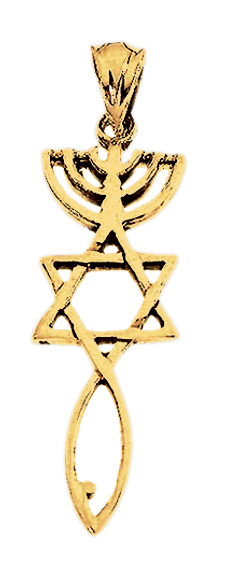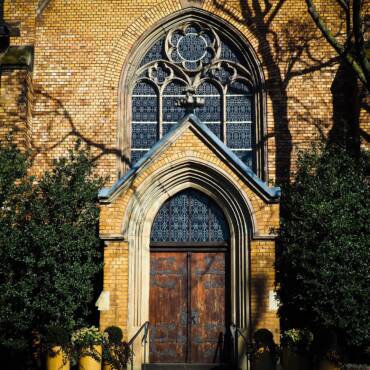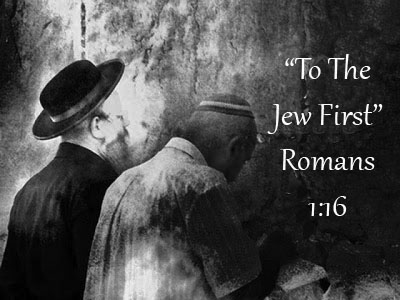Historical Issues for Jewish Unbelief in Yeshua (part 3)
Through the first two articles in this series, we have considered various historical events which have led to widespread Jewish unbelief in Yeshua today. Now we will take a brief look at one more period of history that has greatly hindered the furtherance of the Gospel among the Jewish people: the last 2,000 years of anti-Semitic persecution, much sadly perpetrated by those who would call themselves followers of Jesus.
To most believers today, it seems unfair, if not completely unreasonable, for Jewish people to dismiss Yeshua just because of what some ‘Medieval skinheads’ did in His Name. But, as strange as it may seem to us today, the historical leaders of anti-Semitism were not peripheral Christians: they were leaders in the Church!
A Tragic History
After the apostles left the scene, many of the leaders who stepped in to fill their shoes held a view of the Jewish people which was far from biblical. As early as the 2nd century AD, the groundwork was laid for a course of history which would eventually lead governments and the Church to declare the Jewish people as ‘fair game’ to any who would seek their harm. Here are a few excerpts from this downward historical spiral:
One of the earliest Church fathers, Justin Martyr, wrote in Dialogue with Trypho, the Jew that misfortunes facing the Jewish people were divine punishment from God: “Tribulations were justly imposed on you [Jews] for you have murdered the Just One.”
In the third century, the theologian Origen authorized the practice of allegorical, rather than literal, interpretation of the Bible, moving the authority from the text to the teacher. As a result, teachers began to read into the text whatever they wanted. This opened the door to much error, including the teaching that each biblical reference to Israel now refers to the Church.
In the fourth century, under the Roman Emperor Constantine the Great, the so-called ‘Christian faith’ that Constantine embraced was legalized and proclaimed to be the state religion. With the legalization of ‘Christianity’ throughout the empire, hostility toward the Jewish people became widespread.
Concerning the Jews, Aphrahat (bishop at Mar Mattai, near Nineveh) wrote in AD 344, “He [God] has truly abandoned them,” while misquoting Old Testament portions such as Isaiah 1:4 to substantiate his claim.
The greatly revered Augustine, in his Reply to Faustus the Manichean, wrote of the Jews as “being guilty of Christ’s blood” and as “cursed from the earth” and therefore, “cursed by the Church.” He continued that their subjugated and miserable state was to be preserved as “proof to believing Christians of the subjection merited by those who in the pride of their kingdom put the Lord to death.”
From AD 386-387, John Chrysostom, Archbishop of Constantinople, delivered eight sermons which degraded Jews in their religion and customs. In these he stated,“God always hated the Jews,” and “It is incumbent on all Christians to hate the Jews.” The year following these sermons marked the destruction of the synagogue of Calinicon.
During the Crusades of the Middle Ages, Jews were routinely murdered by Crusaders en route to the Holy Land. Upon arriving in Jerusalem in 1099, these misguided men rounded up all Jews, herded them into the Great Synagogue, and set it ablaze. While the building burned to the ground, the triumphant Crusaders marched around it singing, “Christ We Adore Thee.”
Impactful writings
Anti-Semitic writings from the Church fathers were not accepted as merely theoretical, but were applied with deadly effectiveness. Charges resulting in the executions of countless European Jewish included Blood Libel, Desecrating the Host, and Die Judensav (The Jewish Sow). Many were also put to death for alleged Jewish rape of Christian women. From century to century, the Jewish people were expelled from one country after another as leaders declared them not fit to live among their people. During the Spanish Inquisition beginning in 1478, thousands of Jews found themselves faced with death at the foot of a cross or expelled from Catholic Spain.
Luther’s Errors lead to ‘Final Solution’
Anti-Semitism continued even during the Protestant Reformation. Martin Luther, the father of the Reformation who impacted history as he proclaimed justification by faith, sadly became anti-Semitic in his later life. Out of frustration that the Jewish people had not yet embraced his message, he wrote an anti-Jewish treatise entitled “On the Jews and their Lies.” His writings expressed the following ideas:
- Jewish synagogues should be burned;
- Jewish homes should be destroyed;
- Jewish workers should be given menial tasks;
- Jewish money should be confiscated; and…
- Jewish people should be forced out of their communities.
These words set the stage for the events which would occur 400 years later as Hitler determined to turn Lutheran Germany against the Jewish people.
In light of this tragic history, is it any wonder that a modern Jewish writer, Jules Isaac, author of Has Anti-Semitism Roots in Christianity? writes, “Hitler’s genocide was a final offshoot of the church’s perennial ‘teaching of contempt’ and ‘system of degradation of Jews’” (pp. 17,18). He goes on to say, “Christian anti-Semitism, the powerful, and strongly rooted trunk upon which [in the Christian world] all other varieties of anti-Semitism are grafted, even those of a most anti-Christian nature” (ibid. p. 40).
How can we as believers today counter this sad history and share Messiah in ways that will effectively reach Jewish people? Stay tuned for the final part of this series, Part 3.5!




Add Comment